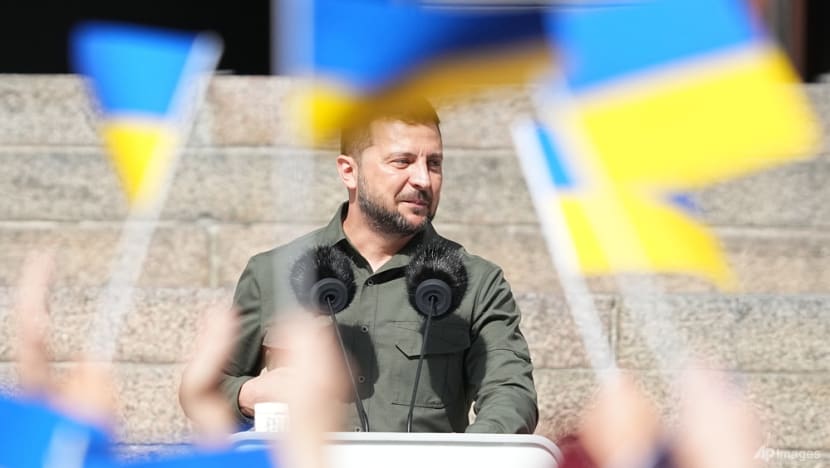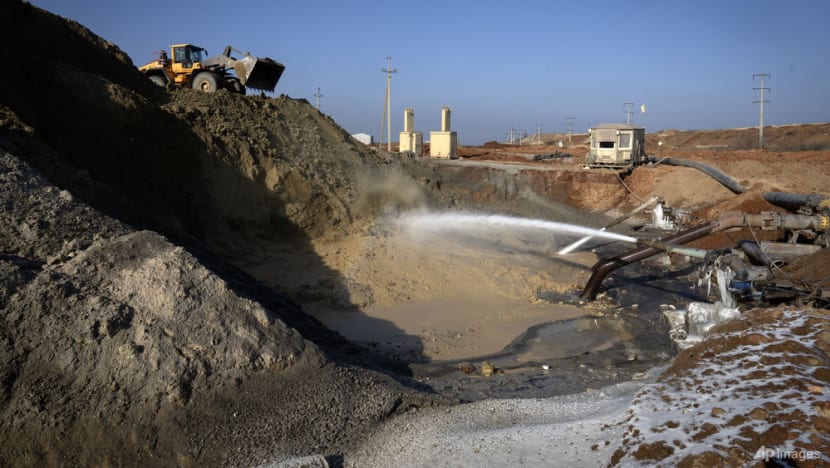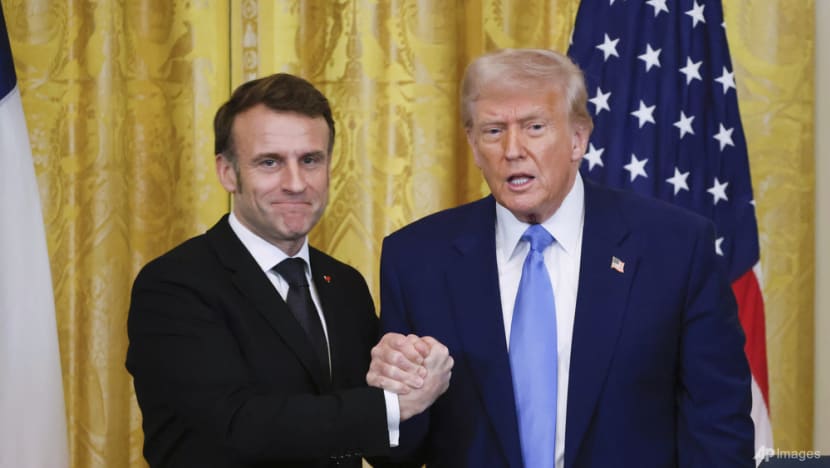‘More than an economic deal’: Rare earths pact with US could give Ukraine strategic gains, say analysts
While a draft agreement does not explicitly guarantee American security for Kyiv, the pact will ensure the United States’ long-term involvement in Ukraine.


This audio is generated by an AI tool.
As Ukrainian President Volodymyr Zelenskyy prepares to visit Washington to seal a deal on critical rare earth minerals, European allies are anxious over a lack of concrete security guarantees for Kyiv.
Analysts said that while a draft agreement provided by a Ukrainian source does not explicitly guarantee American security, the pact would ensure the United States’ long-term involvement in Ukraine.
Lucrative benefits from the deal could incentivise Washington to safeguard its interests in Ukraine’s vast underground reserves, giving the US a direct stake in the war-torn nation’s future, they added.
“If the US invests in Ukraine and they want to protect those investments … that moves towards security guarantees,” said Aurel Braun, a political science professor at the University of Toronto.
Zelenskyy is set to meet US President Donald Trump at the White House on Friday (Feb 28) to sign a deal – one that he hopes will continue American support for Ukrainian forces struggling to fend off further Russian gains in a war that just entered its fourth year.
“If Trump – the most ‘America First’ of all presidents – can sign off on a deal … where the US has a direct stake in Ukraine’s survival as a sovereign state that has not been taken over or turned into a vassal state by Russia, that is a massive strategic gain,” said Robin Niblett, a distinguished fellow at London-based think tank Chatham House.
“This is much more than an economic deal. This really is a strategic step (for both sides).”
WHAT US, UKRAINE GET FROM THE DEAL
Already, Trump has said of the upcoming agreement: “We'll be on the land (in Ukraine) and … in that way, it's this sort of automatic security, because nobody's going to be messing around with our people when we're there.”
The US sees the deal as an opportunity to decrease its reliance on China for critical rare earth minerals, which are crucial for advanced defence technologies, electronics, medical equipment, renewables, and other products vital in the modern world.
The US has depended heavily on China, a leading supplier, for the import of several critical minerals.
But recently, Beijing imposed a ban on their export to the US as part of its retaliation to increased American tariffs on Chinese goods.
Access to Ukraine’s reserves would give the US an alternative source. Kyiv has said it holds about 5 per cent of the world’s critical raw materials.
Kyiv, meanwhile, is hoping the deal would turn Ukraine into a “client state” of the US – where economic and political rewards will keep Washington invested in its defence, said Matthew Sussex, a visiting fellow at the Australian National University’s Centre for European Studies.
The pact will also tie the two countries together for years to come, past the Trump administration.
HOW IS RUSSIA REACTING?
Russian President Vladimir Putin has said the US-Ukraine deal was not a concern, but added he is open to offering the US access to rare minerals, including from Russian-occupied territories in eastern Ukraine.
Trump had earlier said Putin is open to European peacekeeping troops in Ukraine, but the Kremlin this week appeared to reject that claim.
Sussex noted that with Trump’s haste to quickly ink a resolution to the conflict, Putin likely sees an advantage in dragging out the process.
Trump had said he would end the war “within 24 hours” during his election campaign, subsequently lengthening that to 100 days.
“Every day that goes by is a mark of failure for (Trump), so he will want to get a deal done very quickly,” Sussex told CNA’s Asia First programme.
“It is (to Putin’s) advantage to string this out as long as possible to force (Trump) to put more and more pressure on Kyiv to make concessions that favour Moscow.”

Unlike the previous administration’s policy of slapping Moscow with sanction after sanction, Trump’s recent outreach to Putin was a diplomatic flip that dismayed Ukraine and European allies.
However, Niblett said Trump’s strategy of engaging Putin could persuade the Kremlin, which has been battered by economic isolation from the West, to look at striking a deal.
“The view of Trump is to show some face to Putin, to show that (they are) equals on the big stage. He might be able to convince (Putin) there's a possibility of a bigger relationship between the US and Russia, maybe even economic deals,” he said.
Warming US-Russia relations could also serve to cloud Moscow’s ties with Beijing, he added.
“Russia, alone, relies so much more on China. Trump knows that negotiating with China or Russia would be a lot easier if he could just split them a little,” noted Niblett.
“A deal with Putin … potentially injects some uncertainty into the China-Russia relationship. If (Trump) can do that, then America can take a tougher line towards China. So, I think Trump has been quite astute.”
However, observers expect Moscow to be sceptical of deals with Washington as Trump only has four years in office. He must step down after serving the maximum of two terms as president.
“American foreign policy is famously quite jarring and extreme. I can see what Trump is trying to do here. (But this doesn’t mean) Putin can trust the future president of America to uphold Trump’s deals,” Niblett added.
JITTERS AMONG EUROPEAN LEADERS
Alarmed over Trump’s policy shift with Ukraine, European leaders are scrambling to re-engage the American president.
French President Emmanuel Macron on Monday told Trump that US support is critical to guarantee security. British Prime Minister Keir Starmer is expected to deliver a similar message when he meets Trump on Thursday.
Ahead of his trip to Washington, Starmer announced Britain will increase defence spending by cutting its foreign aid budget.
Analysts see the move, similar to Trump’s own cost-cutting measures by slashing aid, as Starmer committing to European security and looking to build up momentum for the rest of the region.

Defence spending by US allies has been a pet peeve of Trump’s, who has long lamented they do not spend enough for their own security and instead freeload off American protection.
“(Europe) is in a new geopolitical standoff for the long term with Russia and cannot rely on the US for its long-term security. Europeans have to take more responsibility,” said Niblett.
Braun said European powers are starting to grasp the need for self-reliance but are “late to the game” and boosting their military capabilities could take years.
“They have been warned for many years that they should not be dependent on Russia for energy, and they should increase military spending. They are now beginning to understand that,” he said.
“(But even when they do scale up), they will still need American help in terms of satellite reconnaissance, communications, transportation, and nuclear deterrence. So, the US is an indispensable power.”
















